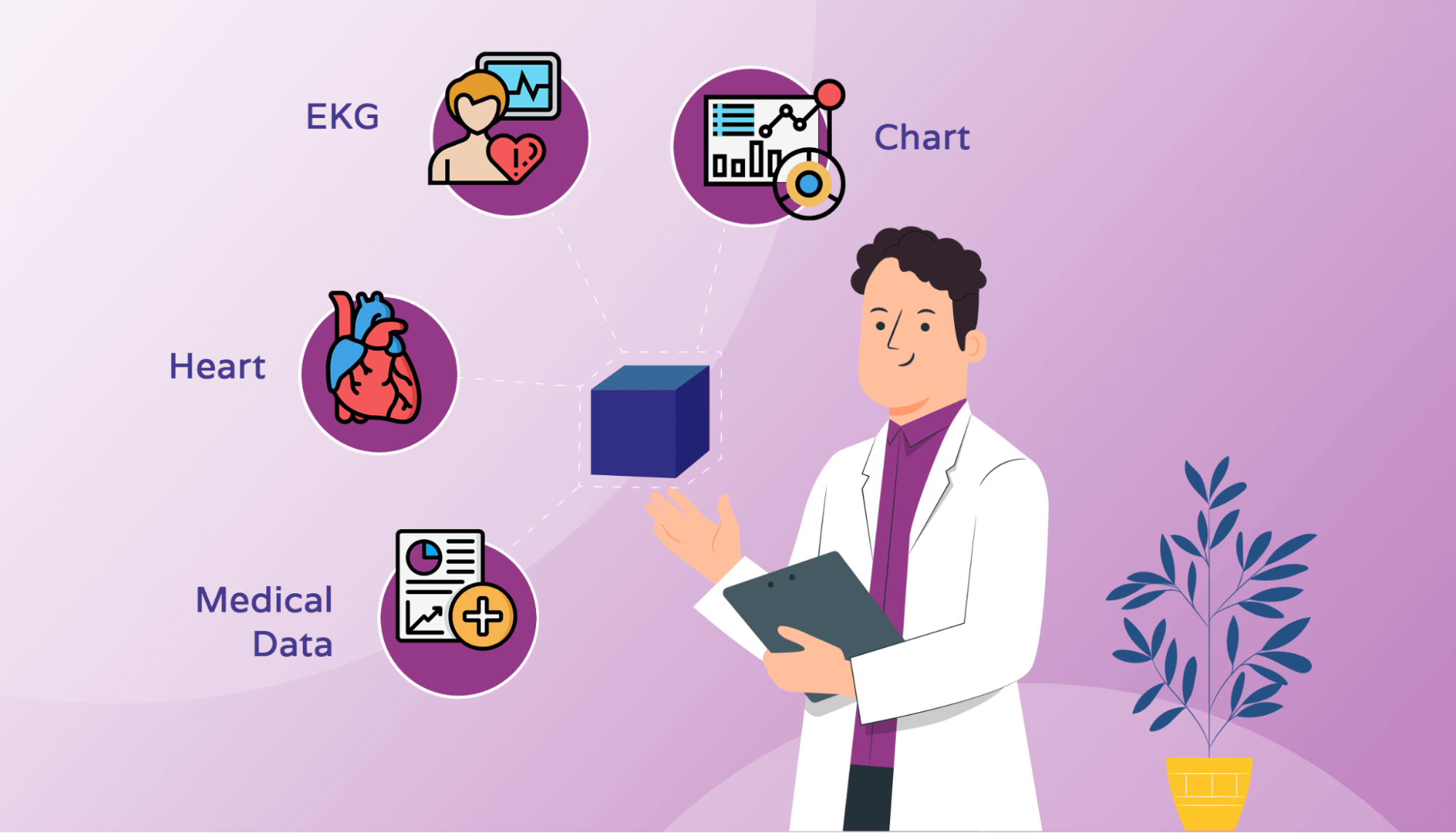Data entry is vital for any medical office, but it can be time-consuming and expensive to do in-house. It can leave providers and office staff struggling to keep up with patient records and administrative tasks. This can lead to entry errors and issues with medical billing and coding.
While many believe hiring an in-house data entry specialist is the best solution, this isn’t always the case. Many healthcare providers find that outsourcing medical data entry is more efficient and cost-effective. This article will explore the top advantages of outsourcing medical data entry.
What is medical data entry?
Medical data entry is the function of transcribing sensitive patient information from paper records into an electronic health record (EHR) system. Data entry specialists input demographics, clinical notes, laboratory results, and radiology reports into the EHR. This task is essential for provider offices transitioning from paper to digital records.
This process can be time-consuming and requires high accuracy to avoid errors. Any type of entry error can lead to medical billing and coding issues, which can be expensive for providers.
Outsourcing medical data entry can help reduce these risks while also providing additional benefits for provider offices. Contact Hello Rache to learn more about Virtual Administrative Assistants, who offer medical data entry services to providers across the globe.
Outsourcing Your Medical Data Entry is the Way Forward
Medical data entry is vital to any medical provider’s daily activities. It’s also a highly time-consuming task that can hold you back from working on more revenue-generating activities.
However, not only does it hinder your profit margins, but it also puts a strain on the healthcare service you’re providing, and the quality of your service can soon crash. Due to the highly competitive nature of the healthcare industry, many medical providers are now outsourcing their medical data entry tasks so that they can concentrate on the most important aspects of their business.
Every healthcare professional, from the industry novice to the respected veteran, wants to improve their service; just a small improvement can lead to an enhanced customer experience that can’t be matched.
If you can deliver this regularly, you’ll find that your patients are happier, and they will come back time and time again. Though many professional medical organizations are reticent to hand over control of their medical data entry, that’s because they’re unaware of the wide range of benefits on offer.
Outsourcing medical data entry to save on costs
While most providers believe that hiring an in-house data entry specialist is the best solution, this isn’t always the case. In-house data entry can be costly and may not be the most efficient option for your office.

The data entry outsourcing market is expected to grow by an astonishing $351.84 million through 2023, and there’s a good reason for this. Many providers find that outsourcing medical data entry services is more efficient and cost-effective.
One of the most noted advantages of outsourcing medical data entry with a Healthcare Virtual Assistant is the potential to save on costs. In-house data entry costs can add up quickly, especially if you need to hire multiple specialists. Additionally, this expense doesn’t guarantee accuracy. The cost of errors can be even more expensive, leading to billing issues, or worse mix ups that can negatively impact the treatment of patients.
Outsourcing medical data entry allows you to pay only for the services you need. This can help providers save on overhead costs, such as office space and equipment. It can also help avoid the expenses associated with hiring and training in-house staff.
Even offices with large volumes of work can benefit from outsourcing medical data entry. This is because outsourcing can provide economies of scale, resulting in lower costs per record. A set budget can also be established for data entry services, allowing better control of costs.
How Does Outsourcing Help Improve Accuracy?
The accuracy of medical data entry is essential to avoid errors. This can be a challenge for less experienced in-house staff, who may be unfamiliar with the medical terminology used in patient records. They may also be juggling other mundane tasks, which can lead to mistakes. This is especially important if your office is transitioning from paper records to an EHR system.
Errors in medical data entry can lead to billing and coding issues. These errors can be costly for providers, so avoiding them is important.

Outsourcing companies specializing in medical data entry jobs can help improve accuracy by providing quality control measures. These companies often have a team of experts who review the work for errors before it’s submitted to you. This can help ensure accuracy and avoid any mistakes that could lead to costly errors.
In addition, most outsourcing companies use software that helps automate the data entry process. This software can reduce the risk of human error by automatically checking for mistakes.
More Benefits of Outsourcing Your Medical Data Entry
We may live in an age that is becoming increasingly digital, but while this has certainly revolutionized the data management industry, it still remains a tedious and labor-intensive task. The processes involved in maintaining, saving into the correct format, and sorting are immense, and that’s before you factor in the myriad forms of data involved.
After all, the healthcare industry is complex, and a typical day’s worth of data entry can take in doctor’s notes, claims, and insurance document checks. It’s certainly time-consuming, and without a doubt, it will leave your admin staff suffering mental fatigue.
This scenario is concerning as it leaves you with an overworked and stressed workforce, hardly a conducive setup for maximizing productivity and profit. Thankfully, this is now a problem that can easily be remedied and leave your business more efficient and competitive. It’s all thanks to the rise in popularity of outsourcing data management tasks to third-party providers. Your workers no longer have to toil as they wade through piles of paperwork and try to organize them into something resembling order.
Outsourcing medical data entry can provide other benefits for provider offices. These include freeing up staff to focus on other tasks and providing access to experts in the field. Some of the most prominent advantages include:
Working with Skilled Professionals
If you want your medical data to be handled and processed correctly, then it must be dealt with by someone professional and an expert in their field. Remember, this data is highly sensitive, as it could make a real difference in the well-being of your patients and the level of service you can provide.
Therefore, having a team of dedicated workers – whose trade is data entry – allows you to have peace of mind that the data is handled with the highest level of care and accuracy. With reduced errors, your patients are more satisfied, and there’s less need to investigate queries with the data.
Meeting compliance standards
The Health Insurance Portability and Accountability Act (HIPAA) requires all professionals in the field to maintain the privacy and security of patient data. Many outsourcing companies will certify their virtual assistants in HIPAA training. This helps protect your patient data and ensures that it will be used only for the purpose of transcribing medical records.
Maintaining a competitive edge
In the current business climate, it’s vital to maintain a competitive edge. Outsourcing data entry services can certainly help you do that. If your workers don’t have to waste time on mundane and repetitive tasks, they can focus on other areas of work that require their attention. This allows you to be more productive, efficient, and organized.
Reduction in Training Costs
Data entry may appear, at first, to be a reasonably straightforward task, but the amount of training involved in handling medical data entry is phenomenal. Understanding how to handle sensitive data confidentially isn’t easy. When this goes wrong, it can have severe ramifications for your organization.
Then there’s the wide range of data types to learn about and process correctly; it’s clear that a lot of training is required, an exercise that costs money. Data entry staff, however, come fully trained and can get to work straight away to create a seamless transition.
Save on Technology Costs
Medical data entry may not be the most technology-intensive job, but the amount of digital data involved does require investment from business owners. Computers are essential for processing and sorting medical data, and enterprise-level computers (and their associated storage and security costs) are more expensive than you think.
Outsourcing your data entry saves you on technology costs as medical data processors are all set up with the equipment required to complete the job. We recommend using Google Drive to share files seamlessly in the cloud.
Reduce the Risk of Obsolescence
Outsourcing is an intelligent move for any healthcare organization as it mitigates the risk of obsolescence. The work and investment involved in developing new infrastructure and installing specialist data software can deliver strong results, but what happens when technology becomes obsolete? And the need to grow becomes too challenging to implement?
This scenario can easily sneak up on you and provide a major headache regarding finances and time. Outsourcing avoids this as data management providers constantly evolve their technology and become more flexible to help scale their service to your workload.
Improved customer service
In-house staff that also handle data entry may be too busy with administrative tasks to provide adequate customer service. This can lead to frustration and long wait times for patients.
Outsourcing medical data entry can help improve customer service by freeing up your staff to focus on providing quality care. This can help reduce wait times and improve the overall patient experience.
Improved office efficiency
In-house data entry specialists may not have the training or experience to transcribe complex medical records. This can lead to delays in getting records entered into the system. In addition, outsourcing your data entry projects can help reduce operating costs by 40%. This can help improve your office’s bottom line and allow you to reinvest in other areas.

Outsourcing medical data entry can help improve office efficiency by providing trained specialists to transcribe complex records. This can help reduce delays and improve the overall efficiency of your office.
The highly competitive healthcare industry demands that consumers are able to experience a high-quality service but at a reasonable price. Health, after all, is an essential but fragile commodity, so your business must demonstrate an understanding of this. However, this is often easier said than done. You can start by outsourcing your medical data entry to make it a little bit easier.
Outsourcing allows medical professionals to make substantial cost savings in two of the most important areas of the industry: labor and technology. This combination of savings can seriously revolutionize your business and allow you to pass the benefits on to your customers. The opportunities to generate more revenue become more likely and demonstrate why the time to start outsourcing is now. And, like a rolling stone, your organization will no longer be standing still as competitors outperform you in the marketplace.
Outsource data entry for quality patient care
In the ever-changing healthcare world, providers must stay up-to-date on the latest trends. Medical data entry is one area that’s constantly evolving. As a result, many provider offices are outsourcing this task to specialized companies.
Outsourcing medical data entry can provide many benefits for provider offices. From improved accuracy to increased efficiency, there are many advantages to using an outsourcing company.
Hello Rache is the leading provider of virtual medical data entry services. Contact us today to learn more about how we can help your office improve its data entry processes.
Discover what Hello Rache can do for you and your practice
Tell us a little about your practice & we will contact you within 24 hours.




